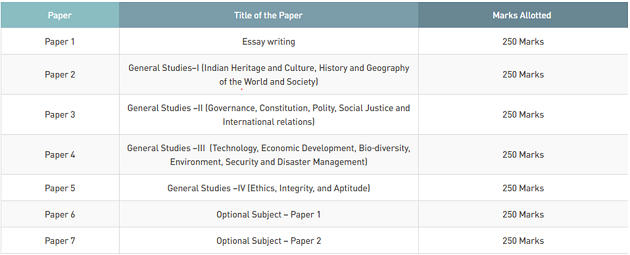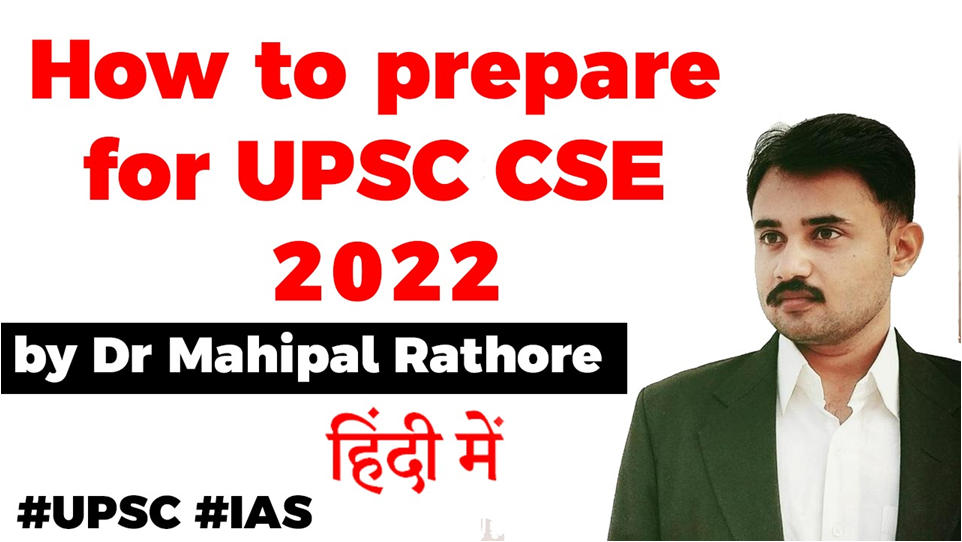Table of Contents
Exam Pattern
Preliminary stage (Objective Type)
- Paper I – General Studies (200 marks) Duration : Two hours
- Paper II – CSAT (200 marks) Duration : Two hours
- Paper-II will be a qualifying paper
- Minimum qualifying marks are 33%.
- Mains (Written and Interview)
- Written/Subjective
- 7 + 2 = 9 Papers
Qualifying Papers – (25%)
- Paper A: (One Indian Language) – 300 Marks
- Paper B: English – 300 Marks

Interview – 275 marks
Tentative schedule of CSE 2022*
- Preliminary exam – June/July 2022
- Mains exam – September/October 2022
- Interview – January/February 2023
Your dream comes true sometime in April 2023!
Preparation Approach for 2022
- College going student
- Working Aspirant
The Beginning
- Do a little research on your own about booklist, pattern and rigors of the exam.
- Watch toppers’ interviews on StudyIQ.
- Make a conducive environment for studying
- Get the books/resources and let the fun begin!
Benefits of early Optional selection
- Learn at better pace
- Read all the suggested ‘books’ and not just notes.
- More time to revise
- Optional syllabus of most subjects is static (less CA)
Optional Selection
- Anthropology? Sociology? History? Public Adm.? Literature?
- Factors to be taken into consideration –
- Background /graduation
- Interest
- Availability of material nearby you/online
- Guidance by seniors in that subject
- Select an Optional within 3 months of reading GS
SYLLABUS
Paper I – (200 marks) Duration : Two hours
- Current events of national and international importance.
- History of India and Indian National Movement.
- Indian and World Geography – Physical, Social, Economic Geography of India and the World.
- Indian Polity and Governance-Constitution, Political System, Panchayati Raj, Public Policy, Rights Issues, etc.
- Economic and Social Development-Sustainable Development, Poverty, Inclusion, Demographics, Social Sector Initiatives, etc.
- General issues on Environmental ecology, Bio-diversity and Climate Change – that do not require subject specialization.
- General Science
Paper II- (200 marks) Duration : Two hours

- Comprehension
- Interpersonal skills including communication skills
- Logical reasoning and analytical ability
- Decision making and problem solving
- General mental ability
- Basic numeracy (numbers and their relations, orders of magnitude, etc.) (Class X level),
- Data interpretation (charts, graphs, tables, data sufficiency etc. – Class X level)
Books – TMH , RS Agarwal, Arihant
For Current Affairs
Current events of national and international importance.
- THE HINDU
- Yojana magazine
- India Year Book**
- Any one monthly current affairs magazines/videos
- UPSC IQ – Monthly magazine by StudyIQ
- Newspaper – One of the most crucial aspect of preparation
English medium
- The Hindu – vast coverage of international news
- The Indian Express – in depth coverage of national issues
Hindi medium
- Navbharat times
- Dainik Bhaskar
- Vocabulary
- Current affairs
- Structuring essays – Editorials
Strategy for Current Affairs
- Focus more on Polity related CA
- Science and tech, Defence
- Art and Culture
- IR
- Newspaper – start making a habit of reading editorials
BOOKLIST for PRELIMS
History
- History of India and Indian National Movement.
- Old NCERT for Ancient class 11
- NCERT 11,12 (New)
- Class 6-8 NCERTS for Medieval(Themes of World History)
- TN board books 6-12 class
- Spectrum – A brief history of Modern India
- Bipin Chandra’s India’s Struggle for Independence
Geography
- Indian and World Geography -Physical, Social, Economic Geography of India and the World.
- NCERT 6-10 – all world geography topics
- NCERT – 11,12
- G C Leong – Physical Geography
- Geography of India by Majid Husssain
- Oxford Atlas – While reading news –> make/add to notes
- Maps
Polity
Indian Polity and Governance-
- NCERT 11,12
- Laxmikanth – Indian Polity
Economy
- Economic and Social Development — Sustainable Development, Poverty, lnclusion, Demographics, Social Sector initiatives, etc.
- NCERT 11,12
- Indian Economy – by Ramesh Singh (for reference)
- Sanjiv Verma’s – The Indian Economy (for basic understanding)
- Any good Coaching class notes**
- Latest Economic Survey Summary/Study IQ Videos
Environment
General issues on Environmental Ecology, Bio-diversity and Climate Change – that do not require subject specialization
- Biology NCERT 12 (Only Environment chapters)
- Shankar IAS
- DR Khullar
- Dr.Ravi Agrahari’s book
General Science
- NCERTs 6-10
- Science Reporter
- Book by Dr.Ravi Agrahari
- Stress will be on Current affairs
BOOKLIST for MAINS
- **Books/sources mentioned in prelims booklist are not mentioned again
GS 1- General Studies-I : Indian Heritage and Culture, History and Geography of the World and Society
- Nitin Singhania for Art and Culture
- CCRT website/news articles
- World History- Norman Lowe** / Study IQ world History series
- Post-Independence-
NCERT 12 (Politics In India after Independence);
- 9,10 (India and Contemporary World); India Since Independence
- **If you have a lot of time then –
- India after Gandhi by RC GUHA (Summary on my Telegram channel)
- Society – NCERT 12 (Indian Society)
GS 2 – General Studies- II: Governance, Constitution, Polity, Social Justice and International relations
- Polity – DD Basu
- Governance book by Laxmikanth
- Study IQ smart course for Governance
- Yojana magazine
- 2nd ARC report (summary)
- IR – 12TH NCERT
(Contemporary world politics + News analysis)
GS 3 – General Studies-III: Technology, Economic Development, Bio diversity, Environment, Security and Disaster Management
- Science Reporter magazine
- News about new developments in science, Nobel prize
- Data/rankings from various reports
- StudyIQ videos
- Disaster management – IGNOU notes
- Internal Security – Book by Ashok kumar
GS 4 – General Studies IV:
Ethics, Integrity and Aptitude
- Lexicon by Chronicle
- Book by G.Subba Rao
- Case studies
Essay
Practice key topics beforehand like
- Social issues,
- Pollution,
- Women empowerment
- Energy related issues
- Digital India
- 4th Industrial revolution
- Optional paper 1
- Optional paper 2
- English – Practice previous papers
- Language – Practice previous papers
Time Table
2 year Timetable


Notes
Make your own notes always
- Benefits of making Notes –
- Concise – easy to carry
- Easier to revise
- Things you write down will stick in your memory better
Do not make notes of Current affairs*
Practice
- Knowledge gained by reading is put to test in a limited period of time.
- So practice in a simulated environment – time / environment
- Join any test series (online/offline) – evaluate which topics are you weak in.
- Mains – answer writing – multiple platforms available (UPSCIQ)
Other Sources
- RSTV – Desh Deshantar/topic specific debates
- Down to earth magazine
- Livemint , BBC and AIR audio news
- PIB updates
- Study IQ videos for Current affairs/ Daily MCQ series
- Social media accounts of various Ministries,UN organizations for info on different reports/new policies
Daily routine
- 40 Minutes for newspaper and Current affairs
- +
- 2 GS subjects for 2 hours each
- Or
- 1 GS subject for 4 hours
How to Avoid Burnout!
- Today, the human brain is exposed to tonnes of information – almost drowned in the digital stream of information.
- It is easy to feel as if the day is getting wasted doing too many things.
- Fix a time for digital devices
Maintain a schedule
- SLEEP for 7 hours
- Eat Healthy
- Exercise for minimum 30 min everyday
- MEDITATE

- SACRIFICE
For 2 years , AVOID UNNCECESSARY
- CALLS
- TRIPS
- FRIENDS
- RELATIVES
Latest Burning Issues | Free PDF






















 WhatsApp
WhatsApp